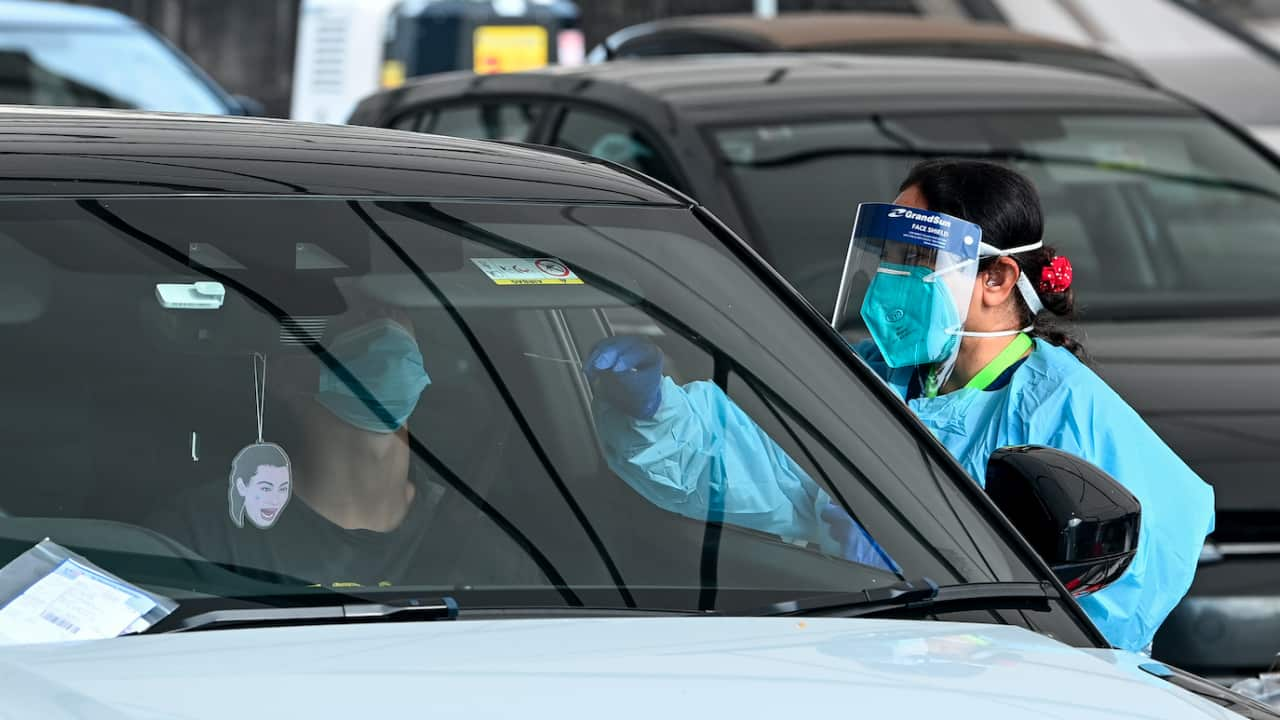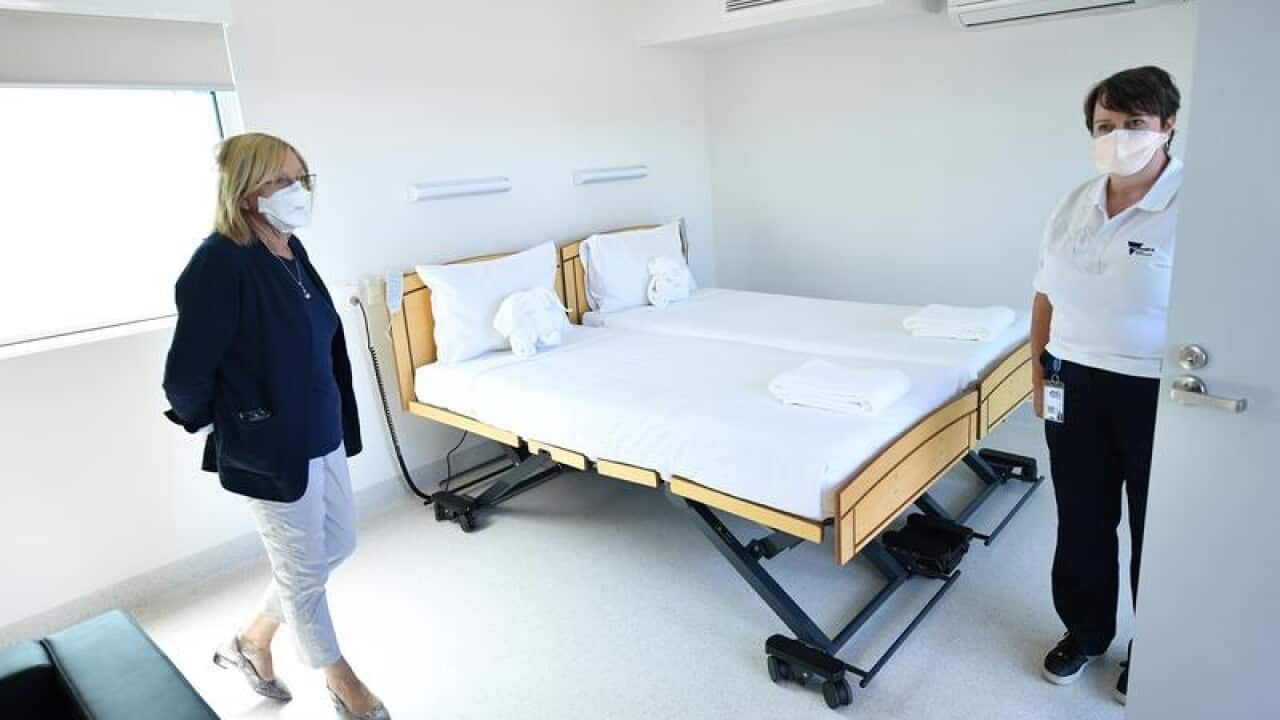At least another 32 people have died after contracting COVID-19 across Australia, as New South Wales eases school testing and Victoria readies to open its new quarantine hub.
NSW on Sunday reported 21 new COVID-related deaths, while Victoria had nine and Queensland two.
In NSW, there were 5,582 new infections and some 1,280 virus patients remain in hospitals across the state, with 77 of them requiring intensive care.
Of the positive results returned, 3,866 were collected using rapid antigen kits and 1,716 processed in labs.
Victoria added 4,867 new infections to its COVID-19 caseload on Sunday along with a further nine virus-related deaths.
Health authorities say the state continues to manage more than 46,700 active coronavirus cases, down from 48,420 reported on Saturday.
There are 358 COVID patients currently in Victorian hospitals, 51 of them in ICUs and a dozen who require ventilation.
Of the new cases recorded in the 24 hours to Saturday evening, 3,141 were the results of rapid antigen tests and 1,726 were reported via PCR lab tests.
NSW school testing to ease
Meanwhile, NSW Premier Dominic Perrottet says surveillance testing of school children will move to an on-demand basis from Monday week.
Parents will receive eight rapid antigen tests per student to be distributed in two drops.
"The packs are there for families and staff to use at their discretion for their own peace of mind, for example, when a student is feeling unwell with a sore throat or cough, or if family members are sick," the premier said.
Teachers will also receive the free tests.
Minister for Education Sarah Mitchell says there have been no school closures since students returned this year, despite the levels of community transmission.
"Testing children twice a week was not an easy task and I'd like to thank all of the parents and carers for their efforts in these critical first few weeks of term," she said.
Early childhood staff will also receive the additional RAT kits to be used when necessary.
Queensland records two COVID-19 deaths
Another two people have died with COVID-19 in Queensland as the state records 4,265 new cases, with infections in schoolchildren continuing to decline.
Chief Health Officer John Gerrard said said neither of the people who died had been vaccinated while one person was in residential aged care. One was aged in their 70s and the other was in their 80s.
Dr Gerrard said the number of hospitalisations in Queensland has continued to decline in the past 24 hours.
In public hospitals, there are 365 people being treated for COVID-19 - down from 391 on Saturday - with 33 in intensive care. In private hospitals, there are 21 being treated after there were 23 on Saturday.
"The situation in general with regards to COVID-19 in Queensland continues to improve significantly," Dr Gerrard said on Sunday.
He said schoolchildren cases had also fallen, with 1,381 reported in the 5-17 age group on Sunday, down from 1,507 on Saturday.
"There's been no significant increase in schoolchildren cases in the last couple of weeks since the schools opened and no increases in children admitted to hospital," Dr Gerrard said.
"I am pleasantly surprised. We thought there would be significantly more."
Victoria's quarantine hub set to open on Monday
Meanwhile, the state will welcome the first cohort of unvaccinated international travellers to its newly-built $200 million quarantine hub on Monday.
The facility, at Mickleham in Melbourne's north, will replace hotels and become Victoria's only quarantine site from April.
"The Omicron variant has shown us we must continue to be flexible in our pandemic response - and the purpose-built Victorian Quarantine Hub will be vital to how we manage pandemics today and into the future," Police Minister Lisa Neville said during a visit on Saturday.
Quarantine Victoria Commissioner Emma Cassar says the hub's open-air setting will eliminate many of the challenges hotel quarantine posed.
Able to accommodate up to 1,000 residents, its standalone cabins allow for constant fresh air flow, individual ventilation systems and CCTV monitoring.
Guests will have access to in-house electronic food ordering and entertainment to minimise contact between residents and the site's 560 staff.
The hub's cabin-style accommodation includes entry and exit points via outdoor decks to prevent the virus spreading through shared corridors.
The site is split into four villages, with all services and amenities delivered directly onside to limit unnecessary internal or external movement.
Staff are being trained on-site, with other final preparations underway including stress-testing all systems to ensure infection prevention and control processes are in place.
With SBS News.











